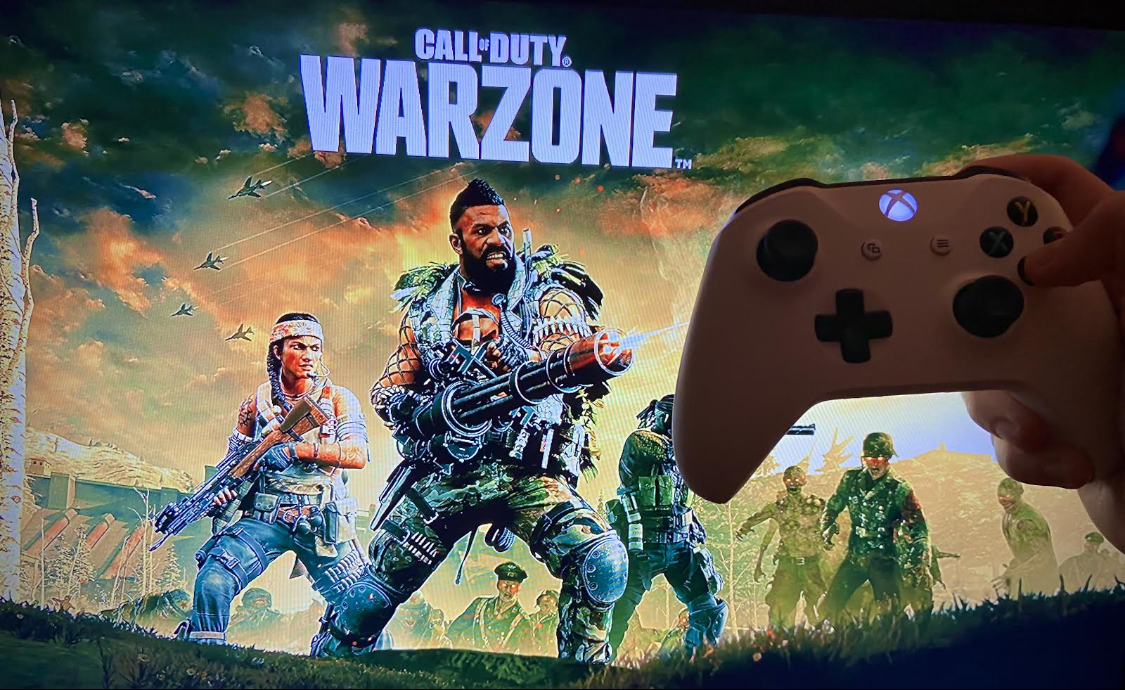It has been a little over a year since video game publisher Activision released the first free-to-download game in an iconic franchise: “Call of Duty: Warzone.” From a marketing perspective, the timing of its release could not have been better. The 2017 smash hit battle royale “Fortnite” had already been on the market for nearly three years, which proved to be plenty of time for it to rise to and then fall from its peak. Most significantly, however, “Warzone” provided a fresh, free and convenient option for gamers to connect online in March 2020, and an accessible way for non-gamers to get into the scene.
Because of all this, it should not come as a surprise that just like “Fortnite,” “Warzone’s” introduction to the video game market was astounding. Within two months of its release, it received a whopping 60 million downloads, and in less than a year, it showed signs of being more popular than “Fortnite.”
“Warzone’s” early, and rapid growth can be attributed to much beyond the perfect timing of its release. For one, “Warzone” has the advantage of brand recognition as a part of the flagship “Call of Duty” video game series. Along with this, “Warzone’s” realistic graphics and innovative gameplay aspects set it apart in the highly saturated free-to-play battle royale market.
But fans of “Warzone,” and battle royale games in general for that matter, know that the early game hype is just that: hype. Upon release, fans are exhilarated by the novelty of the game, the new map, new weapons and hidden Easter eggs.
But before too long, the game’s popularity tends to stagnate. Virtually all major battle royale games experience this. Perhaps there are only so many consumers in the battle royale market, and perhaps the single gameplay-mode model lends itself to repetitiveness.
The stats back this up too. After “Warzone’s” initial feat of 60 million downloads, it only received a further 20 million downloads in the following months.
Game developers are well-aware of this trend and implement methods to incentivize players to keep coming back. The main strategy that battle royale game developers use is called “season updates”. Through these, game developers can introduce new parts to the map, new weapons and sometimes entirely new maps and game modes. When “Fortnite’s” popularity declined, their developer, Epic Games, began a major collaboration with Marvel Studios to excite potential players.
“Warzone” implemented something similar during Halloween. The massively popular “The Haunting of Verdansk” allowed players to fight at night, and to play as zombies while ghosts and other spooky sights haunted the map. But unfortunately for “Warzone” fans, the majority of the game’s season updates and mid-season updates have been massively disappointing, often causing more problems than anything else.
In December 2020, “Warzone” underwent perhaps its largest update ever, “’Warzone’: Season One”. When the “Call of Duty” franchise released a new video game titled “Call of Duty: Black Ops Cold War,” Activision implemented a major crossover between the two games. Weapons from the new Black Ops game were introduced to “Warzone,” and an entirely new battle royale mini-map/game mode titled “Rebirth Island” was developed.
While some aspects of this major update were beloved by fans, for the most part, it was problematic. Many “Warzone” fans saw this update as a cash grab by the “Call of Duty” franchise, encouraging players to buy their latest title, meanwhile jeopardizing the gameplay integrity of the already existing “Warzone” game.
The update also appeared to be rushed, as “Warzone” became riddled with game-breaking glitches, and the addition of new weapons caused a massive gameplay imbalance. Even before this update, Activision and the “Warzone” community were at odds with each other, as the widespread issue of hackers ruining game lobbies remained rampant.
Perhaps the biggest existing problem with the game was the frequent updates that easily exceeded 40 gigabytes. When “Warzone” fans realized that Season One’s massive update was causing issues as opposed to fixing them, players were upset that the extra data had weakened the game rather than improving it.
Today, “Warzone” is in a crucial period. It has been about four and a half months since the release of the season one updates, and gameplay imbalances remain prevalent as a result of it. With monotonous gameplay, major in-game bugs and storage-expensive updates, the discontent in the “Warzone” community cannot be understated. Fan’s cries for an entirely new map might finally be answered soon, but as the previous season updates caused major issues, fans are nervous that the next one will do the same.
But where does all of this leave Activision? Do these problems speak to the flawed nature of the battle royale game mode in general? Many battle royale games saw sharp rises before flatlining. Will “Warzone” suffer the same fate?
Activision certainly hopes this is not the case, having made distinct efforts to improve “Warzone’s” gaming experience, which shows that the company is holding out hope for the game to continue being profitable.
Since February, Activision partner Raven Software has released updates banning a total of 90,000 cheaters. Just this past week, “Warzone” underwent an update decreasing its overall file size by about 12 gigabytes, promising that it will also lead to smaller updates in the future. But will it be enough to keep “Warzone” relevant?
If there is one thing to be learned from “Fortnite,” it is that dwindling popular discourse does not always signal financial ruin. Even though “Fortnite” may have lost its place in popular culture, it maintains a steady community base. Activision must hope that “Warzone’s” fate is similar. However, if we know anything about video games in general, it is that not even the most beloved brands and titles are immune from major decline if they are caught slacking too long. Only time will tell what will become of the tumultuous “Warzone.”


